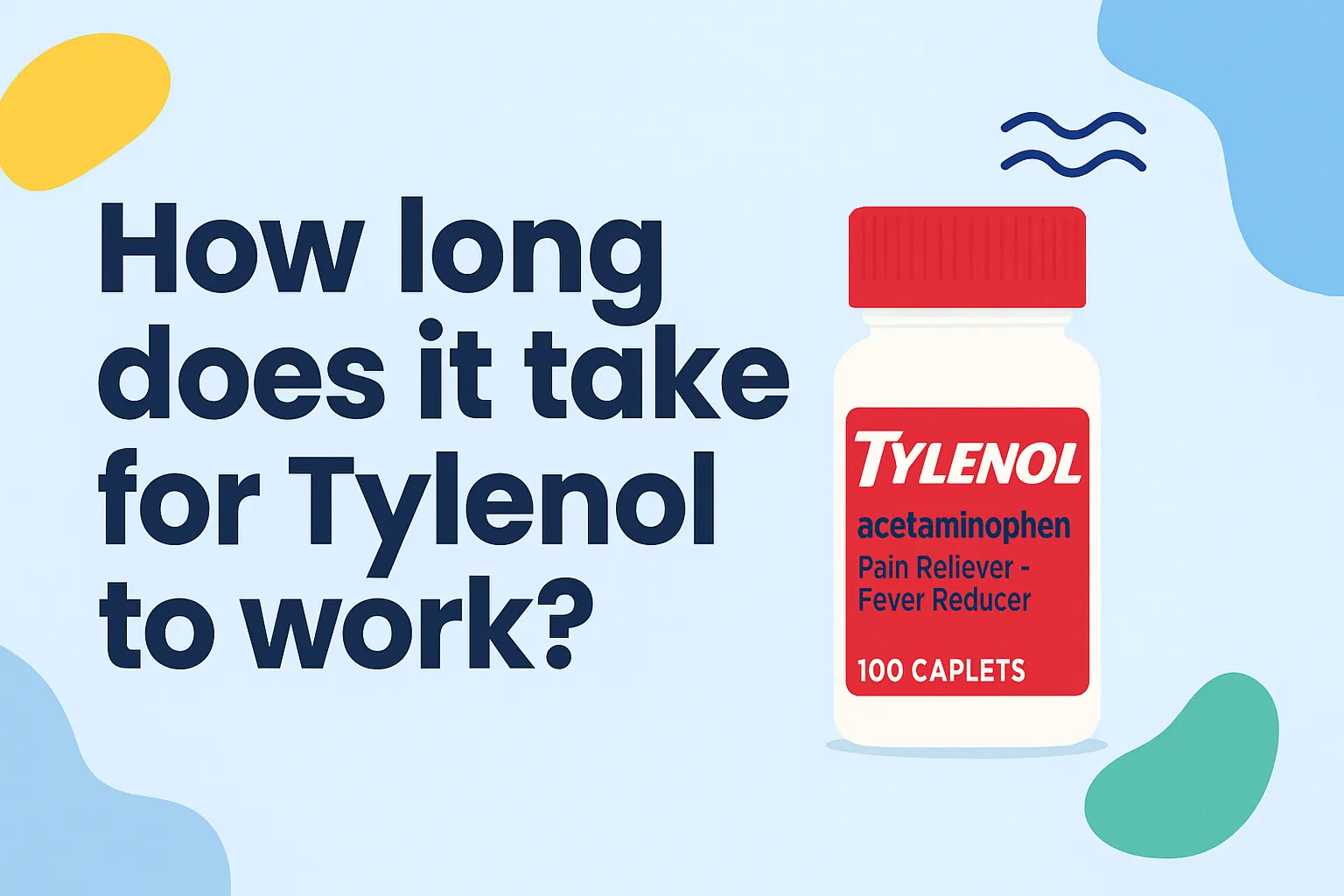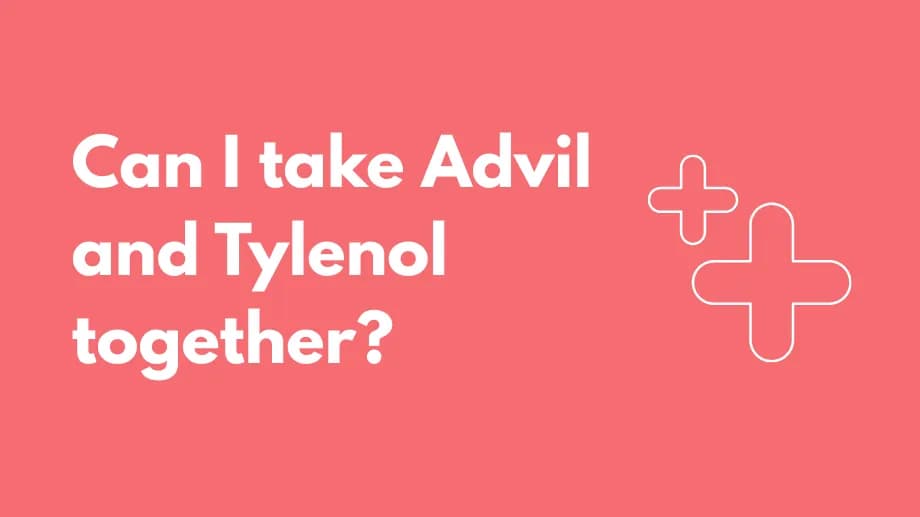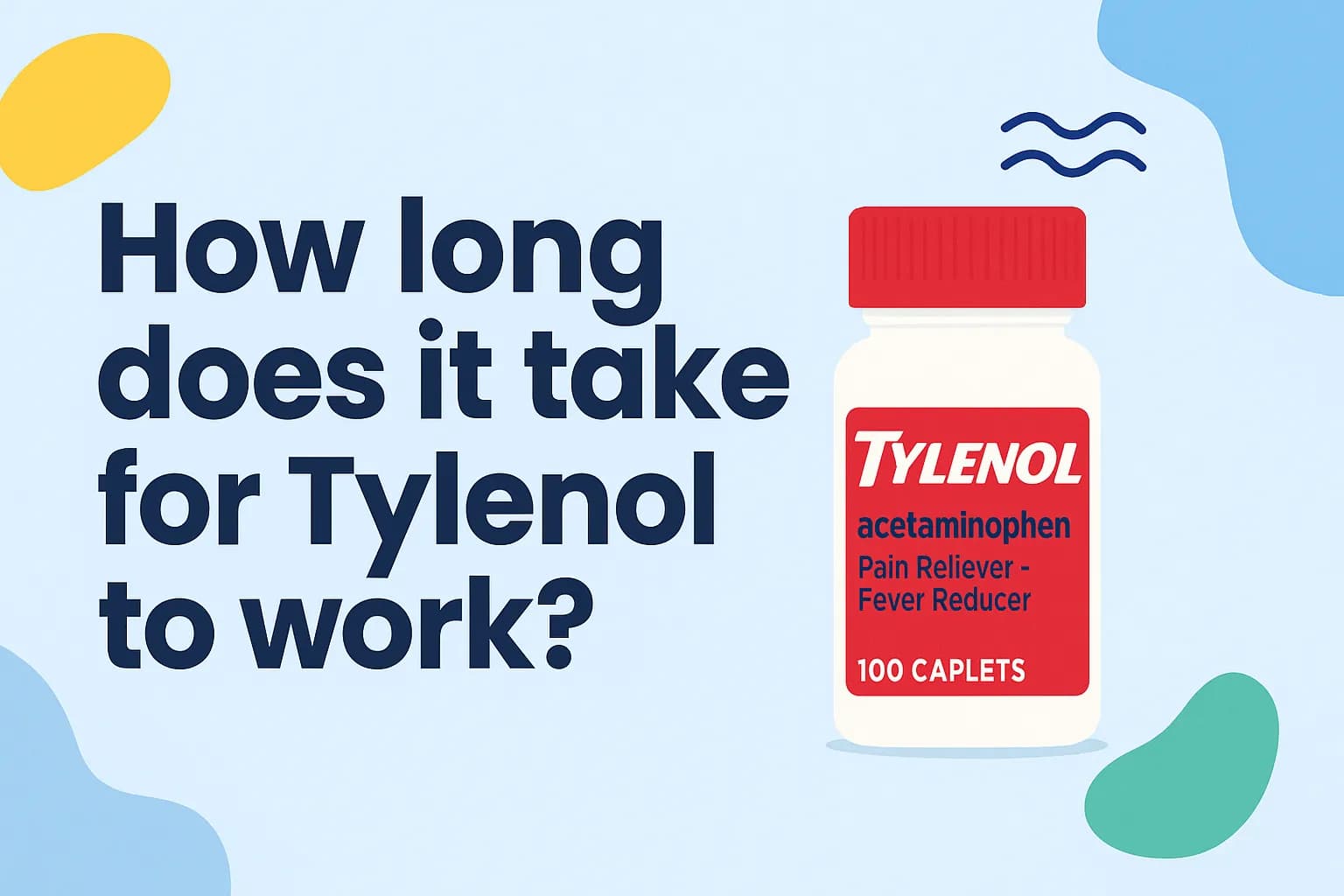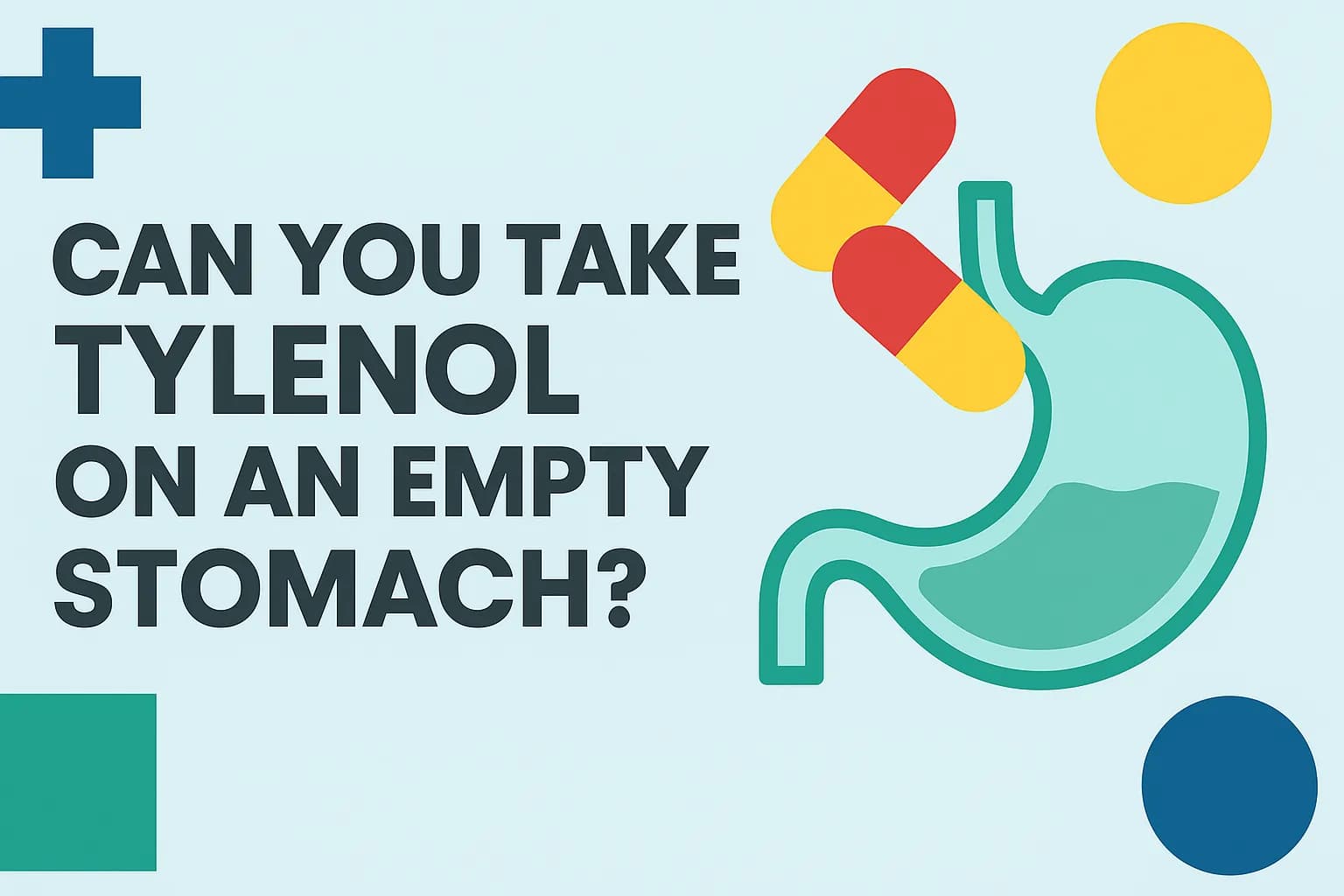How long does it take for Tylenol to work?

Tylenol (acetaminophen), also known as paracetamol in many countries, is one of the most popular over‑the‑counter pain relievers and fever reducers. It is available in tablets, caplets, gel caps, chewable tablets, extended‑release tablets, orally disintegrating tablets, rectal suppositories, and as an intravenous (IV) formulation used in hospitals and emergency settings.
The time it takes for Tylenol to start working depends on the formulation. Oral forms must dissolve in the stomach and be absorbed into the bloodstream. Approximate onset times on an empty stomach are:
Onset times by formulation
- Regular tablets, capsules, or caplets: 20 to 30 minutes
- Extended‑release (8‑hour) tablets: 30 to 45 minutes
- Rapid‑release tablets or powders: 15 to 20 minutes
- Chewable tablets: 15 to 20 minutes
- Orally disintegrating tablets: 15 to 20 minutes
- Children’s liquid: 15 to 20 minutes
- Rectal suppositories: 1 to 2 hours
- Intravenous acetaminophen: 5 to 10 minutes
While onset varies, all forms are equally effective at easing pain and reducing fever. Dose amount affects overall efficacy but not speed of action.
What is Tylenol used for?
Acetaminophen is the active ingredient in Tylenol and many other OTC and prescription products (for example Percocet, Tylenol #3, Lortab). By itself, it relieves mild to moderate pain from headaches, backaches, sore throats, arthritis, toothaches, muscle aches, and menstrual cramps, and reduces fever.
How does Tylenol work?
The exact mechanism is not fully known. It is thought to alter pain perception in the brain and act on the body’s heat‑regulating center to lower fever.
Possible side effects
Side effects are uncommon. Some users may experience nausea or headache. Serious reactions requiring immediate medical attention include allergic reactions (rash, hives, swelling of face or throat, difficulty breathing) and liver damage. Signs of liver injury include dark urine, fatigue, abdominal pain, or yellowing of skin or eyes. Overdose can be life‑threatening.
Drug interactions
Tylenol may interact with other medications and supplements. Tell your provider about all you take, including:
Shop Medications
- Warfarin
- Alcohol
- Other acetaminophen-containing products
When not to take Tylenol
Do not use Tylenol if you are allergic to acetaminophen or have severe liver disease or impairment.
What to tell your healthcare provider
Before using Tylenol, inform your provider if you have:
- Liver disease
- Heavy alcohol use (three or more drinks per day)
- Phenylketonuria (some formulations contain aspartame)
- Pregnancy or plans to become pregnant
- Breastfeeding or plans to breastfeed
What is the maximum daily dose?
Adults should not exceed 4,000 mg of acetaminophen in 24 hours. Those with liver risk factors may need a lower maximum. Pediatric dosing should follow a healthcare provider’s guidance.
Related Medications
- Tylenol Extra Strength (acetaminophen)
- Tylenol Arthritis (acetaminophen)
- Aleve (naproxen sodium)
- Advil or Motrin (ibuprofen)
Sources
- Acetaminophen. StatPearls Publishing. Accessed Aug. 13, 2024.
- Tylenol Regular Strength – acetaminophen tablet. DailyMed. Accessed Aug. 13, 2024.
- Acetaminophen (OTC). Medscape. Accessed Aug. 13, 2024.
- What is Acetaminophen? Johnson & Johnson Consumer Inc. Accessed Aug. 13, 2024.








